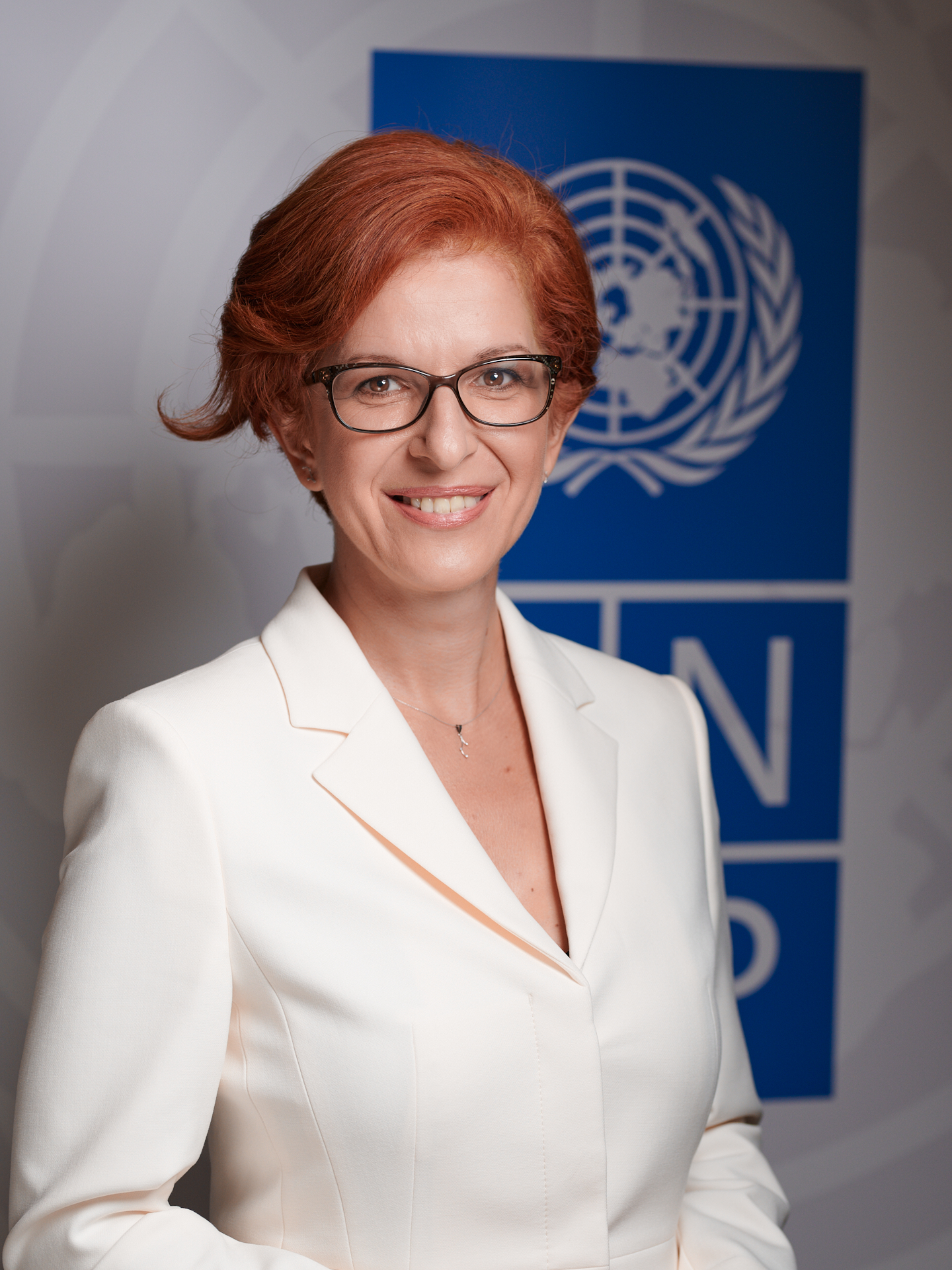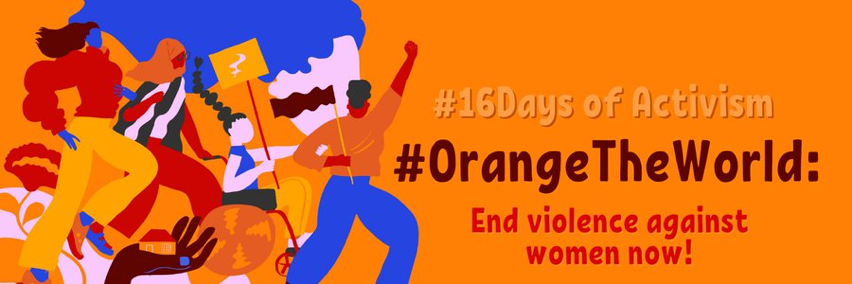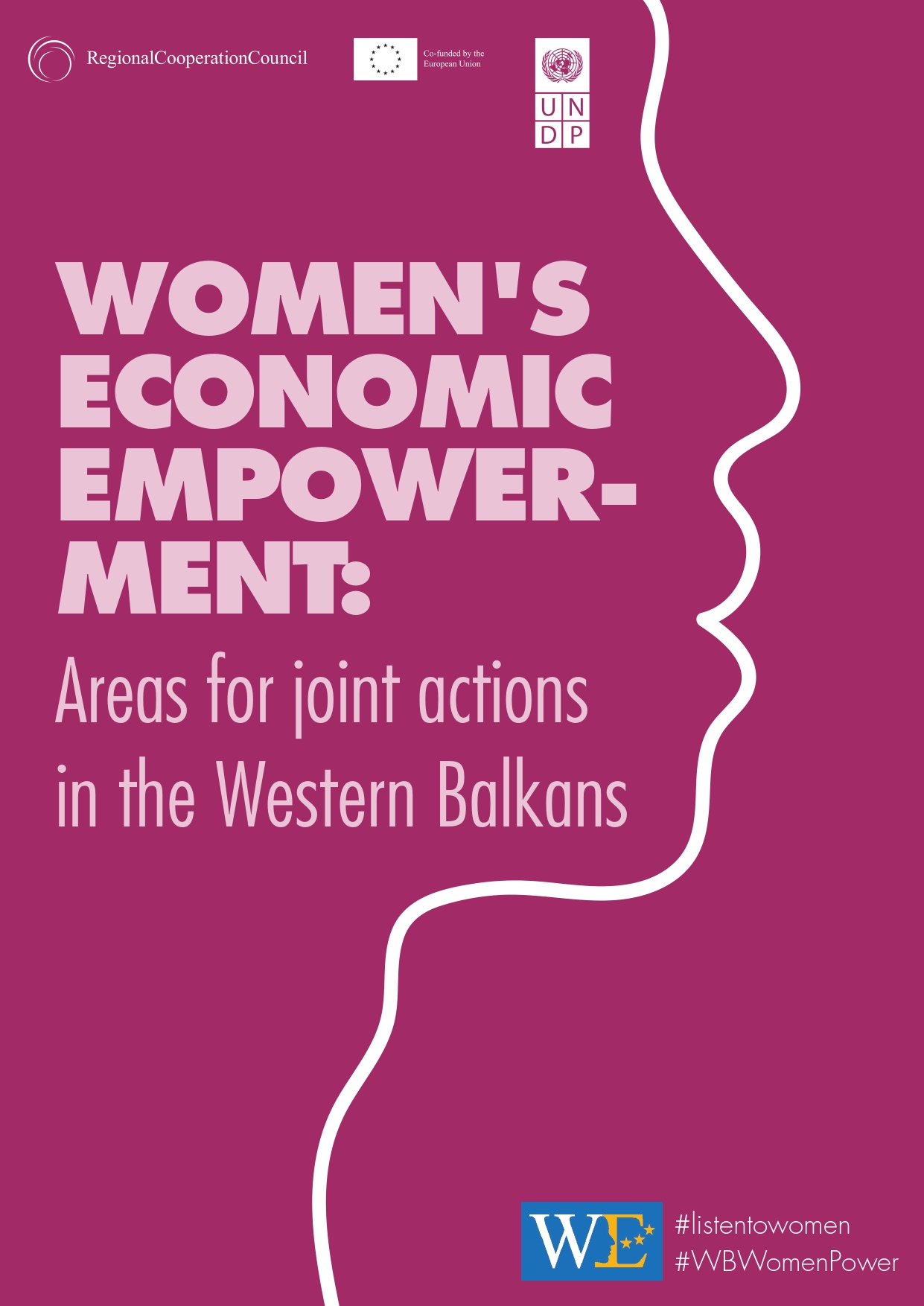UNDP Resident Representative for Montenegro Daniela Gašparikova’s Interview for Portal Analitika:
Violence against women is detrimental to society and raises the question of the responsibility of all links in the system
November 19, 2021
Intervju stalne predstavnice UNDP-a u Crnoj Gori Daniele Gašparikove za Portal Analitika:
Victims' trust in the overall system is very low; as many as 74% of victims of sexual violence have never told anyone about it. Amendments to key laws should bring the penal policy in line with international standards
“Many women globally, even in Montenegro, live in fear of violence. UNDP estimates show that one in three women in Montenegro has experienced some form of violence during her lifetime,“ UNDP Resident Representative for Montenegro Daniela Gašparikova said in an interview for Portal Analitika.
On the eve of the global campaign“16 days of activism against Gender-based violence“, which – at the initiative of the UN begins on November 25 with the International Day for the Elimination of Violence against Women – we talked with Gašparikova about gender (in)equality in our country, but also on the topic of increasing cases of violence against women that have shaken the Montenegrin public in the past.
At the beginning of the conversation with Analitika, Gašparikova talked about how the institutions of the system have failed when it comes to violence against women, how to reduce gender-based violence, and which prevention programs yield better results. She adds that she is not going to say anything new if she emphasizes that violence is unacceptable, that it must be stopped and that we must have zero tolerance for all its forms, as the most extreme manifestation of women's inequality.
“Violence against women – physical and psychological – has serious consequences for society as a whole, as each new case raises serious questions about the responsibility of each link in the system and its willingness to recognize and prevent violence and protect women's lives.
“Montenegrin society is shaped by deep-rooted patriarchal attitudes and norms that can potentially form the basis for unacceptable forms of behavior, among which is certainly gender-based violence,“ Gašparikova said.
REFORM IS REQUIRED TO SYSTEMATICALLY SOLVE THE PROBLEM AND SAVE LIVES
The COVID-19 pandemic, as our interlocutor points out, showed that the home was not the safest place for victims of violence.
“That is why we have not hesitated to provide supported non-governmental organizations in establishing 24-hour support for victims of violence, including the development of the “Be Safe“ application, which is of immeasurable importance for women victims of violence,“ she added.
According to Gašparikova, Montenegro has a developed network of non-governmental organizations that provide support to victims of violence and to which they trust. That is why, in her words, it is important for the state to find a sustainable and long-term model for financing said NGOs.
“This must be done in accordance with the best European practices and in close cooperation and trust between women's NGOs, centers for social work and the police. “Finally, by ratifying the Istanbul Convention, the state has committed itself to this,“ Gašparikova points out.
On the other hand, she says, the fact that victims of violence do not trust institutions is worrying, since most find rescue in civil society organizations that are struggling with the lack of capacity and resources.
“Victims' trust in the entire system is very low. For example, as many as 74% of victims of sexual violence have never told anyone about it. A formal system of multidisciplinary protection does exist, but in practice it does not function adequately, occasionally supporting traditional stereotypes, which leads to exposure of victims to trauma, loss of trust in institutions and abandonment of litigation. Changes in main laws should lead to the harmonization of penal policy with international standards,“ Gašparikova said.
She emphasizes that UNDP has provided full support to the state in drafting the Protocol on Action in Violence, digitization of the social protection system, licensing specialized services for victims, continuous research on the prevalence of violence, intensive education, campaigns and improvement of the normative framework.
“All this, however, has not yet resulted in an effective system of prevention and protection against violence. That is why a decisive reform is needed, which will systematically solve the problem and save lives,“ Gašparikova is categorical.
He adds that in addition to the trauma and often long-lasting consequences that violence leaves on victims individually and their families, as it brings enormous damage to the entire society and its development.
“If we consider the financial aspect only, UNDP research shows that violence against women costs the state budget up to 0.5% of GDP or about 18 million euros a year – both due to reduced labor productivity and the absence of victims of violence from work,“ Gašparikova said.
COVID-19 CRISIS WAS A TEST FOR SOCIETY WHEN IT COMES TO TRUE EQUALITY
In that context, and having in mind the overall situation in the country, we were eager to learn how essential it is in unstable times like this for Montenegro to build the resilience of society and the system in order to provide equal opportunities to all citizens in the “new reality, “so that no one, especially women, be left behind in the process.
“The United Nations is taking global action to end poverty, protect the planet and ensure peace and prosperity. This is contained in the Sustainable Development Goals, which have a much wider scope, because they emphasize the importance of the rule of law and the creation of strong responsible institutions that manage peaceful, stable and inclusive societies and include women in all spheres of development,“ Gašparikova says.
She notes that UNDP has consistently incorporated all these principles into its work in Montenegro, which has translated this ambitious global framework into its own National Strategy for Sustainable Development. “The strategy is human-centered, and puts focus on human rights and gender equality. However, I remind that it is crucial to find a way to implement strategies and ensure comprehensive and budgeted actions that establish clear accountability for progress, including the necessary change of course in cases where strategies do not yield the desired results,“ our interlocutor added.
In this regard, she added, the crisis was a test for society in terms of true equality. “Unfortunately, the results are not encouraging – regarding domestic violence and the disproportionate burden of work at home, but also regarding participation in economic activities.
“The success of investing in economic recovery should be measured not only through GDP, but also through improving women's well-being – if these indicators show improvement, I am sure that economic and social recovery from the pandemic will be felt by all Montenegrins, without exception“, Gašparikova said.
NOT EVEN A QUARTER OF BUSINESS ENTITIES IN MONTENEGRO IS OWNED BY WOMEN
We also talked with the UNDP Resident Representative for Montenegro about the causes of gender inequality, which are most evident in the economic sphere. We asked her what processes should be started and what activities must be implemented when it comes to women's economic empowerment in our country.
“If states fail to allow women to participate equally in economic activities, through the disposal of capital, access to business or control over their own time – then they cannot develop and prosper. According to the World Bank, increasing women's entrepreneurship and women's participation in the labor force would contribute to increasing the GDP of the Western Balkans region by as much as 20%,“ Gašparikova says.
She also observes that before the outbreak of the COVID-19 pandemic, they were aware that the development of women's entrepreneurship in our country was slow.
“Unfortunately, the data for many years indicate a large gender gap between men and women in the economy. Women make up about 60% of all unemployed population in Montenegro, and the majority of those who are not actively looking for work. According to them, the reason is unpaid work at home, which is predominantly related to the care of the elderly, those who are disabled and need additional care, and children.
Despite the legally guaranteed equality in terms of the right to inheritance, less than 10% of all property in Montenegro is owned by women, which, according to our interlocutor, is a serious barrier to starting one’s own business and achieving economic independence.
“Not even a quarter of business entities in Montenegro is owned by women. As a result, we have women who mostly work in low-paid, often temporary jobs, and who are additionally hit by the pandemic. Many women are at risk of losing their jobs and income, without adequate protection,“ she said.
RECOGNIZING FEMALE DRIVING POWER
That is why, she says, strengthening cooperation on various gender issues and encouraging reform that will increase women's participation in the economy lies at the heart of the initiative for economic empowerment of women in the Western Balkans, launched by UNDP a year ago with the Regional Cooperation Council (RCC).
Especially today, when, as she points out, countries define the ways of economic recovery from the pandemic, women represent the potential of any society whose capacities should be recognized and used as a driving force.
“We have seen certain initiatives come to life, such as the Women's Political Network’s one to encourage local self-governments to provide grants to women entrepreneurs, which has gained special significance in the context of the crisis, enabling many women entrepreneurs to overcome challenges. However, individual initiatives in this direction are not sufficient, which is why this regional UNDP initiative envisages a multilateral, long-term approach to creating development opportunities, economic integration and achieving economic stability. Without women's economic empowerment, no society will be sufficiently resilient to future shocks and crises,“ Gašparikova said.
HALF OF THE WOMEN IN THE LABOR MARKET EXPERIENCE VIOLATION OF“GUARANTEED“ RIGHTS
Although the Constitution of Montenegro treats gender equality as a fundamental value, our interlocutor notes that women remain unequal when it comes to access to employment.
“And even when they get a job, they will probably face discrimination due to starting a family, experience sexual harassment in the workplace or encounter invisible barriers in their professional careers. Unfortunately, our research shows that almost half (48%) of women in the labor market experience a violation of their “guaranteed“ rights,“ Gašparikova notes.
She also states that the gender income gap in Montenegro stands at 16%.
“There are two key factors for this difference in income: the first is that women are often employed in lower paid sectors and the second is that women and men are not paid equally for the same work, despite the principle of equal pay for work of equal value work,“ she said.
She reminds that the Law explicitly defines that an employer cannot refuse to conclude an employment contract with a woman due to pregnancy, nor can the employer offer her an amendment to the employment contract under less favorable conditions due to pregnancy, giving birth or breastfeeding.
“Nevertheless, the citizens of Montenegro, in our research, confirmed to us that questions about family planning, pregnancy, and marital status intentions are an integral part of a large number of job interviews in the private sector.
Therefore, it is confirmed on a daily basis that the first important step is to have good laws and bylaws, but also that it is not enough if these laws are not implemented in practice. Therefore, in this phase, it is important that all relevant institutions are empowered to enforce the law, and that judicial institutions sanction such discrimination with their decisions, thus discouraging potential, similar discriminatory behaviors,“ Gašparikova says.
On the other hand, she notes that UNDP also sees employers who are an example of good practice because they create a work environment that attracts talent, regardless of gender.
“These very employers witness increased productivity, profit, team motivation and an overall culture of respect for human rights within the company.
Therefore, the solution is not to be sought in the legislation only, but in the overall systemic approach, which includes changes in perceptions and attitudes, the introduction of standards and strengthening of institutions for protection and respect for gender equality, creating an affirmative environment and, of course, dedicated leadership,“ Gašparikova said.

 Locations
Locations






